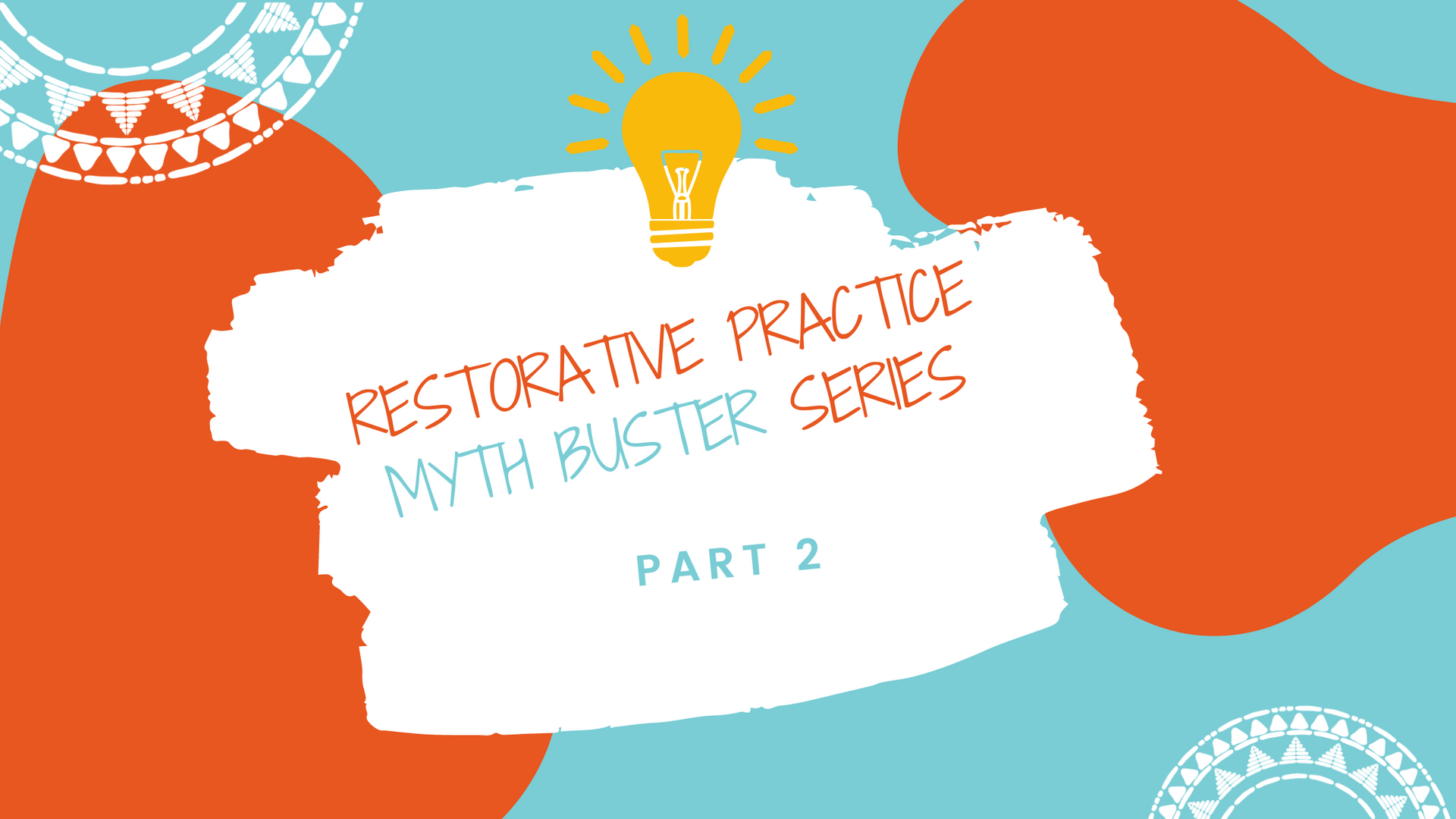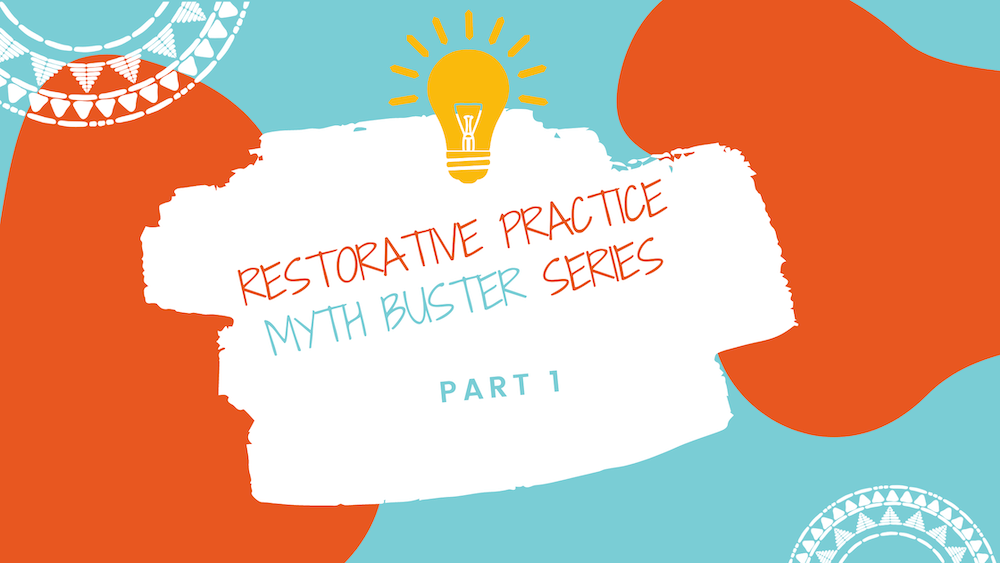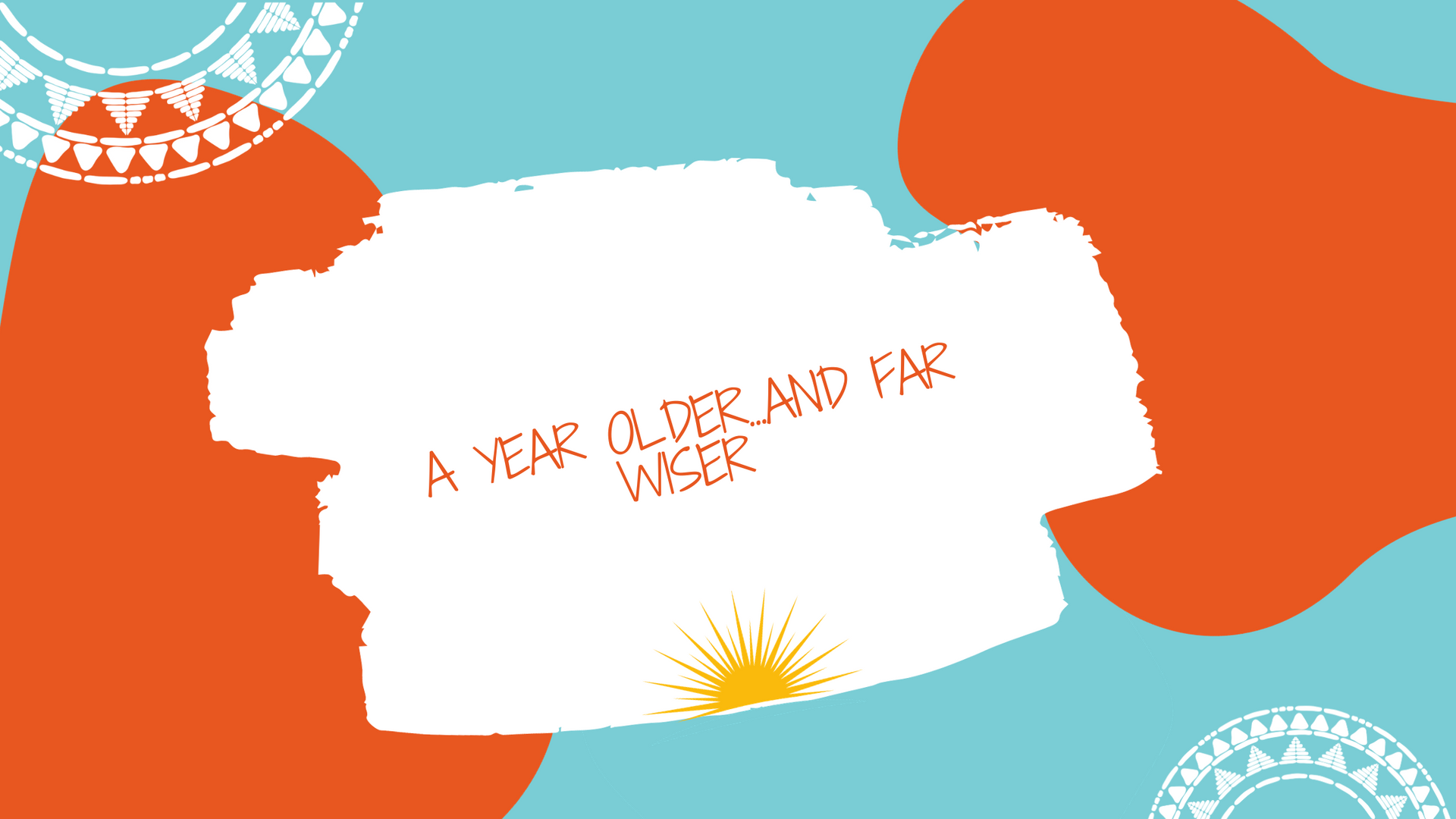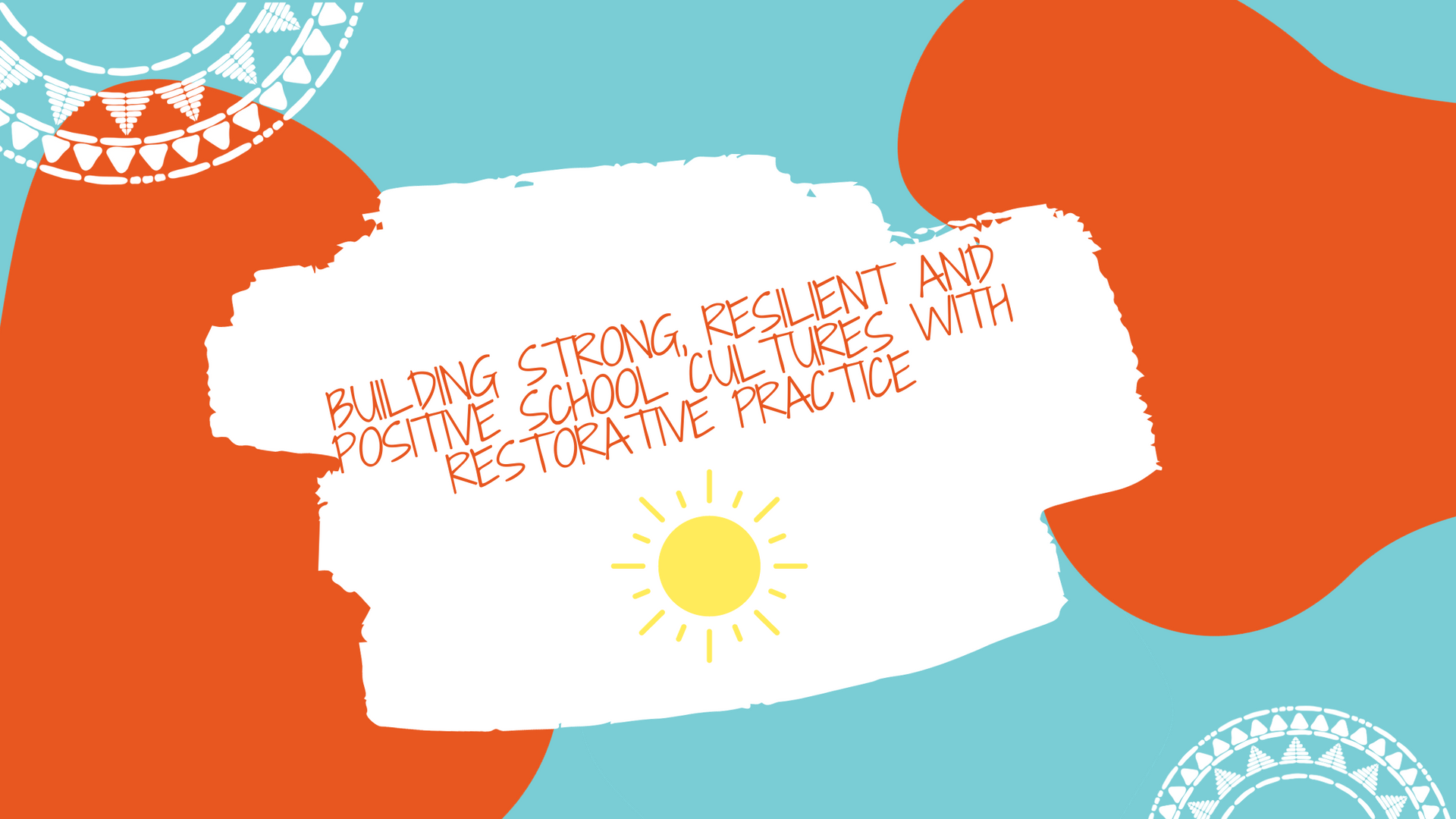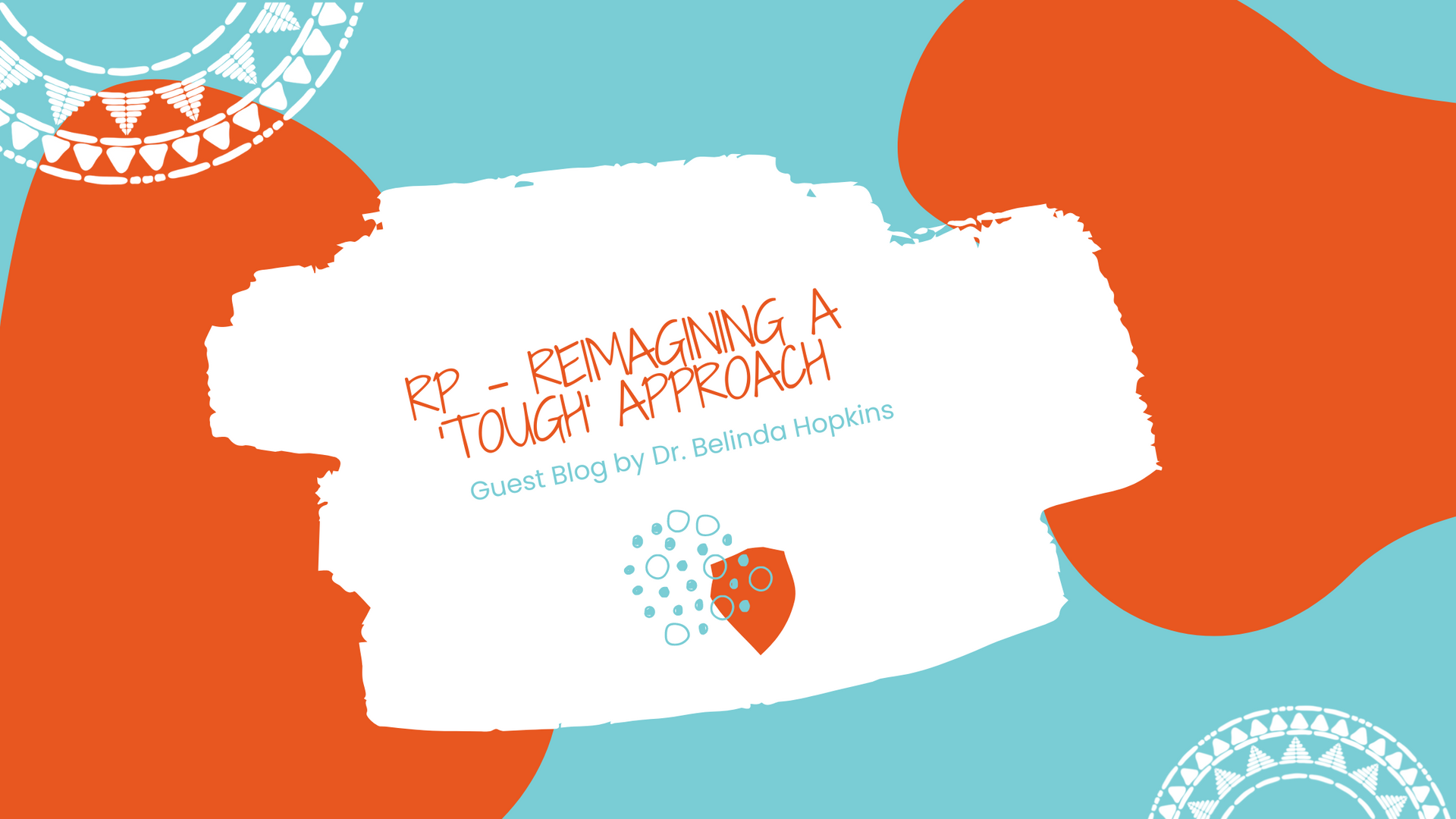
This idea that Restorative Practice is all about the Restorative Questions is a sentiment I hear a lot. Here, I would like to discuss some of the experiences I would have missed out on and some of the things I may not have learned had my learning in Restorative Practice stopped at the Restorative Questions. One of the most disappointing losses one might experience if you focus merely on the Restorative Questions is that of Positive Relationship Building. In September this year I met a little boy in my new class who was very shy, withdrawn and had little self-belief. He struggled academically and explained that he found school really hard sometimes. I was struck by how happy he appeared playing on the yard with his friends but how rapidly his demeanour changed when he re-entered the classroom. It didn’t take me long to figure out the classroom was not a place of safety or welcome for this child. At the end of the first week of school I gave the children big A3 blank white folders and asked them to design and decorate them as they saw fit. I suddenly saw this little boy light up. I went down to his desk and sat beside him. He talked more to me in those 10 minutes than he had for the full week. He explained that he loved to draw and that he created comic books at home. He was engaged, happy and very open with me and I began to see all the wonderful gifts and talents he possessed. From this encounter on, I took every opportunity to praise him for his creativity and to find ways to incorporate this into his learning. I have had the privilege of seeing this child grow in confidence over the last few months. Positive relationship building is something that comes very naturally to many teachers restoratively trained or not. However, what I have learned and what really helped me in this situation was to make this positive relationship building an explicit part of my teaching practise. To make time in the day to build relationships with my students. I have developed simple and manageable procedures such as a checklist of positive interactions to remind myself to praise all of my students. Had I not been using such strategies I may have lost out on this very positive experience and an affirming relationship with one of my students. Another area which falls outside the scope of the Restorative Questions, and is a huge benefit of Restorative Practice is it’s power to support and nurture student’s emotional literacy. In September, I met a group of students who had had little experience of Restorative Practice and I was concerned by their struggle to label and describe their emotions and at times to regulate these emotions. Over the first few weeks of school, I introduced the children to the Restorative Animals, one of whom is Crank the Croc. He can be a little snappy at times and needs understanding and a love bomb to help him to regulate his emotions. Two or three weeks after we had introduced these animals, I noticed one of the little girls in my class was behaving in a manner that was outside the norm for her, she was very sharp with the other children and seemed very frustrated in class. One Friday morning I asked her to have a chat outside the door. I started by telling her I noticed that she was acting differently and I asked “What happened?”. At which point she burst into tears and told me she was just feeling like Crank the Croc, things hadn’t gone according to plan at home that morning and she was in a very cranky mood. So I asked her what does Crank the Croc need to help him when he’s in a bad mood. She replied; “A love bomb” and I asked her what that looked like for her. With some suggestions and scaffolding she decided she’d like to sit beside her friend at lunch and to have five minutes in the Cool Down Corner. At the end of the day I rang her Mam to check in and discovered that the family were going through an extremely challenging time and that things were very emotionally turbulent at home. I have never been so glad that I took an empathetic approach, had I not and had I taken a more punitive approach I feel I would have destroyed my relationship with this student. I would have left school that day with little understanding of that child’s experience and no insight into how to support her for the rest of the school year. Finally, Restorative Practice can act as a powerful lens through which you view your professional and personal interactions with others. A question I learned to ask through Restorative Practice is “Who do I want to be?” As educators we know there are times where so much of a situation is out of our control. This can lead to some very stressful situations when dealing with parents in particular. I find looking at a situation from the parents perspective and recognising that it’s rarely a personal issue with me, rather their deep concern for their child that causes anger and frustration. This helps me to deal with conflict. Also when having contentious meetings with parents I ask myself the question “Who do I want to be?”. It by no means guarantees that I will be met with the same level of empathy but if I can leave such a meeting feeling that I was kind, professional and empathetic well then I’m happy with the only side of the conversation I can actually control.
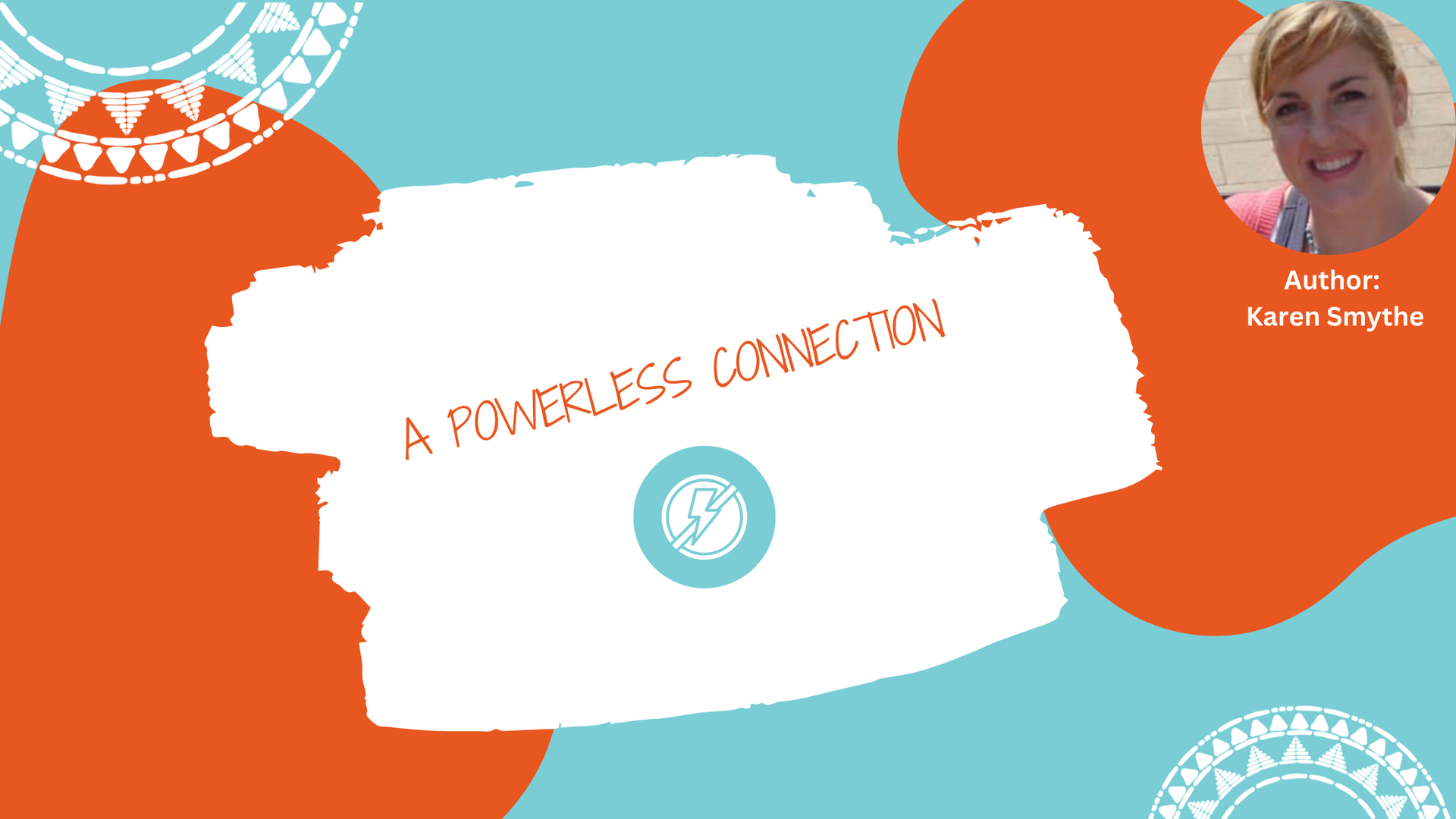
Sometimes, in my role as Guidance Counsellor, I get asked to intervene in situations where several consequences have already been implemented. One such example was a second year “feud” between a boy and a girl who had no dealings with each other in first year and were in the same class for the first time in Second year. Over the first few months, their bickering had escalated to Year Head intervention, detentions and still the teachers were reporting problems in the class. In fact, the whole class atmosphere had been impacted and the class was labelled the problematic one of Second year. “I felt powerless. I was confused, I couldn’t understand why she was treating me like this. I never spoke to her in First year and when we were put in class together this year she started sniggering and whispering to her friends every time I walked into class for no reason. ” (Boy X) These were the words of the boy in a preparation conversation before a Restorative Meeting. But they didn’t come easy. In the first round of the questions, I learned he was angry and that he thought his reputation was ruined. He couldn’t get beyond defending himself and making her out to be the ‘bad guy’. He wanted compensation and for the Year Head to call an assembly and tell the whole year he didn’t do ‘it’. At that stage, based on those answers, I was skeptical that there was a readiness for a Restorative Meeting between the two parties. In my work as an RP practitioner, I know that identifying what feelings reside behind the facts listed are where connection and empathy are built so I delved a little deeper – back to the start of the story rather than this specific incident. I followed the question protocol again and that’s when we started getting somewhere and he made the above revelation. This boy was very articulate, and I could empathise with the feelings he described. He described the mixed emotions of new beginnings, new classmates, and the added burden of this mysterious quarrel with a girl he didn’t know who just had it in for him. In an attempt to regain power, he began acting in a way that he wasn’t necessarily proud of but couldn’t think of approaching any differently. ‘Investigating’ the incident that landed them in my office wasn’t the priority, giving them clarity and a new path forward were.
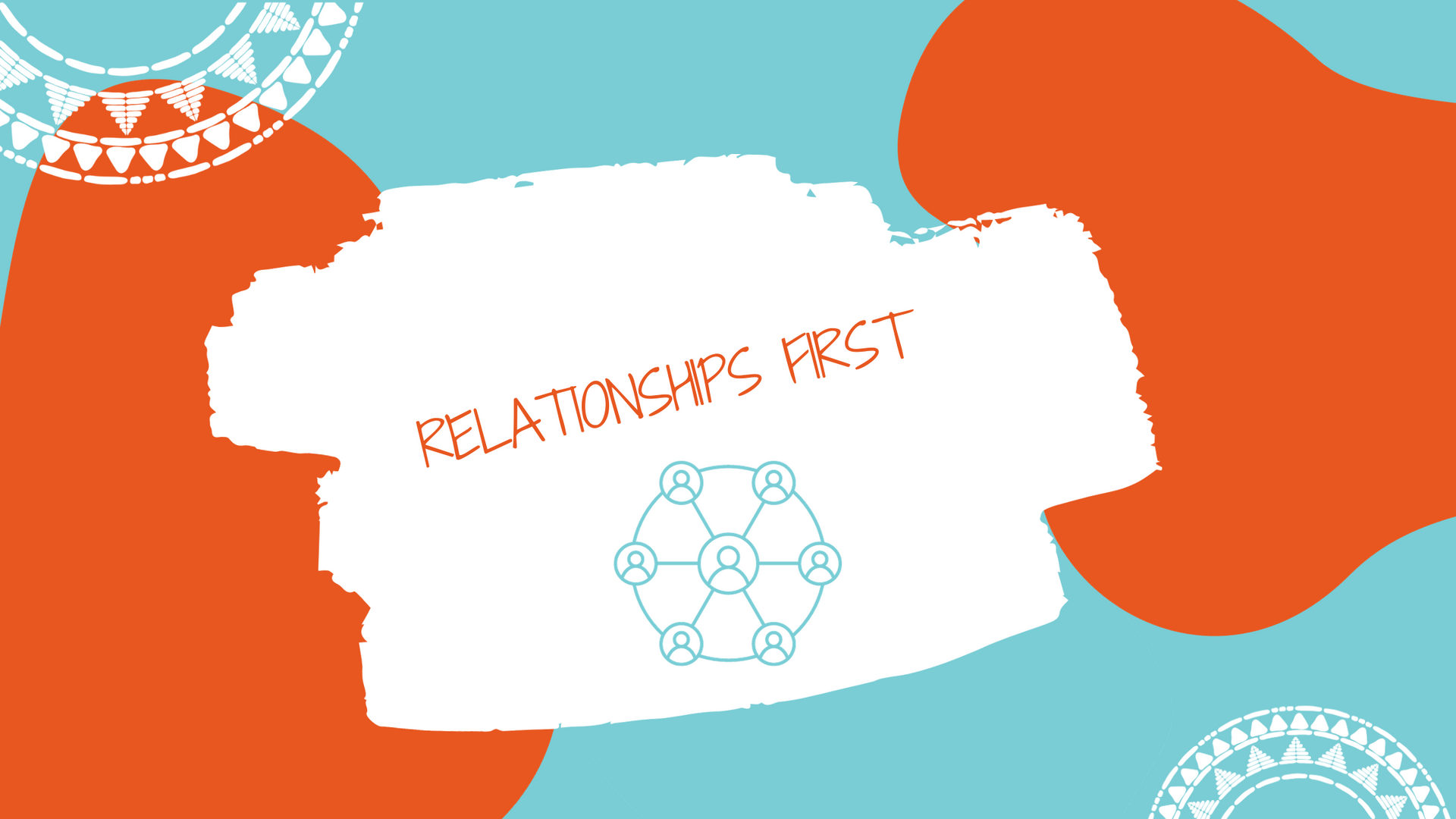
Relationships First is the RP model used by one of my mentors and dear friend from Newfound Land, dr. dorothy vaandering. I love the simplicity of this overarching intention. It is a wonderful compass to guide all that we do in schools - from our relationship with learning, the relationship between our school improvement plans and the people they seek to serve, the connection between colleagues, amongst students, and amidst our school communities- Relationships First! What might this look like in practice? Connection Before Curriculum in Our Classrooms! It could be as simple as connection before curriculum, especially important at the start of the school year when we may be trying to hotwire connection and create some safety and belonging with new students. I’m so very proud of our RP Student Mentor - Be Here, Be You, Belong programme that many of our schools began this academic school year with - seeing images on social media of the connection and relational space the senior students built for incoming first years brings me so much joy.. Dorothy also stretched my thinking around Relationships First further when she suggested that we not only connect before but connect through curriculum - I loved this reframe. Facilitating students to identify their personal scripts through stories they encounter in English class, or perhaps allowing students to see themselves in mathematical equations using relatable data, or using academic prompts such as ‘What was your favourite part / the part you struggled with the most in today’s lesson?’ are as important as using relational one-word-whizz check-ins at the beginning of class. (you’ll see our one-word-whizz series if you follow Connect RP on social media). Bringing restorative language and relational thinking into the classroom by inviting students to use the restorative questions to unpack the subtext of a character or to guide an introspective diary entry of a character in English class to explore the past-present-future grammatical tenses in a language classroom, are just a few ways to foster connection through our curriculum. I love learning from teachers about the many other ways they may seek to do this in their classrooms. Looking at the relationship between what we learn and how we learn - focussing on our relational pedagogy is key! One of my favourite parts of the face to face workshops we deliver is modelling relational pedagogy while learning about RP - but of course we can apply such methodologies while learning about volcanoes or photosynthesis too. It is paramount when nurturing a restorative classroom or indeed school, we look at developing methodologies and whole school preferred relational practices that acknowledge the importance and impact of process - the relationship between how we learn on what we learn. If you would like to know more and engage in an actual experience of this you can check out a list of the workshops, dates and venues on offer this year on our website workshops page here
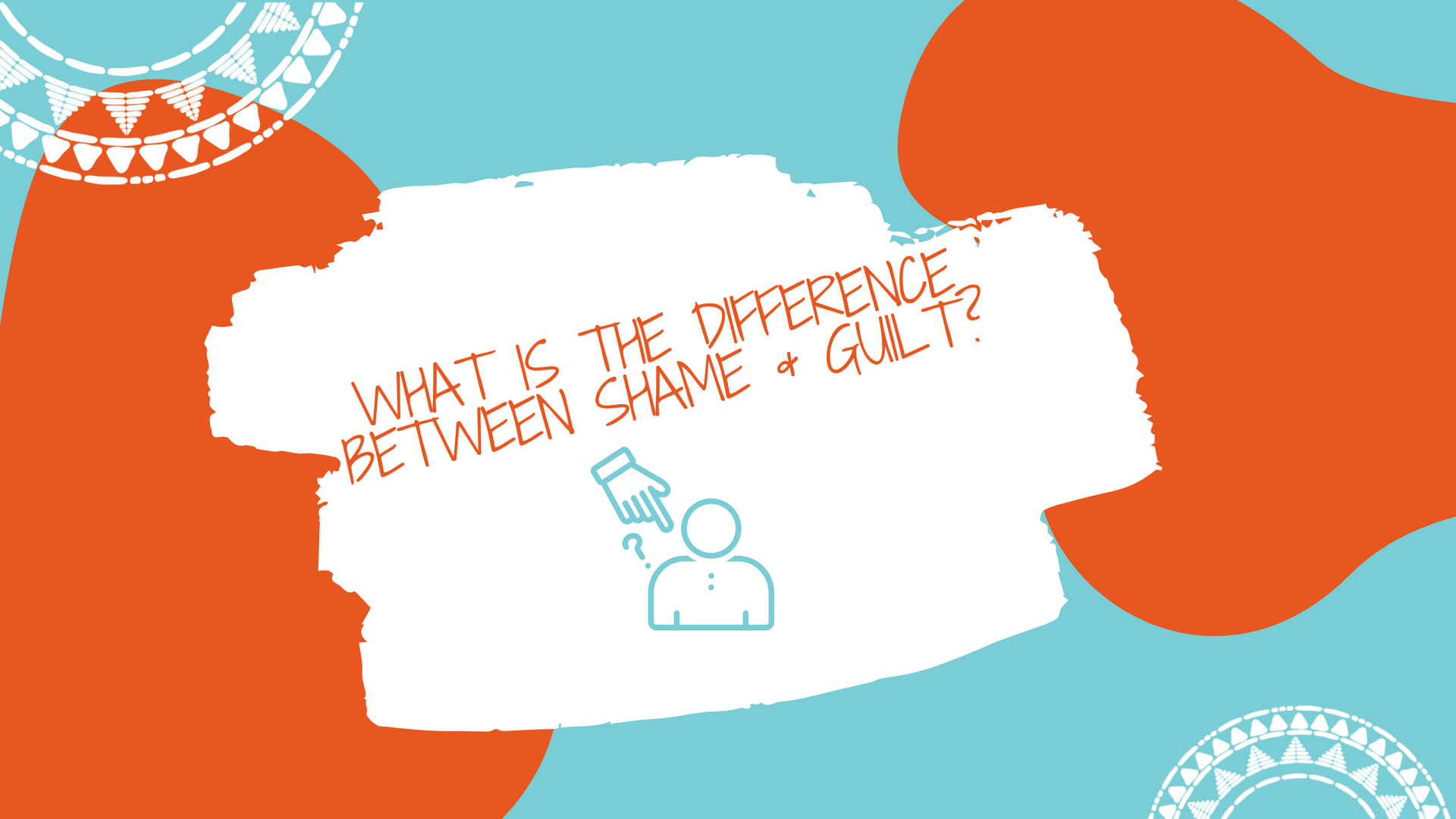
Shame is ‘I am bad’, guilt is ‘I did something bad’. Shame is ‘I am a mistake’ whereas guilt is ‘I made a mistake’! Shame is the intensely painful feeling or experience of believing that we are flawed and therefore unworthy of love and belonging (Breńe Brown). Guilt, on the other hand, is when we feel bad about something we may or may not have done. We know that guilt, as opposed to shame, occurs when we are connected to our values. It is when we hold what we have done or failed to do, up against who we want to or indeed believe we can be and it doesn’t feel good (Brown 2013). It can be uncomfortable but it is highly adaptive. This is what inspires connection to our true selves, to our values, and to others; this is what motivates authentic apologies and a desire to make amends.Whereas shame corrodes the part of us that believes we can change! Is it ever helpful for people to feel shame? In short, No! Shame is very deep, damaging and can have life-long consequences. It is corrosive to a positive sense of self, which is exactly what we need to know, to live, in order to positively contribute to ourselves and our communities. Shame is highly correlated with violence, addiction, bullying and aggression. Shame is far more likely to cause misbehaviour than to cure it yet the culture and punitive systems that we operate within often dictate and encourage shaming responses to such behaviour by criticising, or imposing punishments TO them that usually just sponsor blind resentment instead of recognition of values; armoured defense instead of open reflection, and shame cycles instead of healing connections. Sometimes, as loving parents or caring educators, we unconsciously contribute to poor behaviour by shaming people who may have caused harm or done wrong. Our intention, of course, is to support the people in our care to do better, to teach the young people the difference between right and wrong, but to do this we must learn to separate the behaviour from the person, only then can we allow someone who has caused harm the opportunity to connect to their own values and goodness in order to do better.


